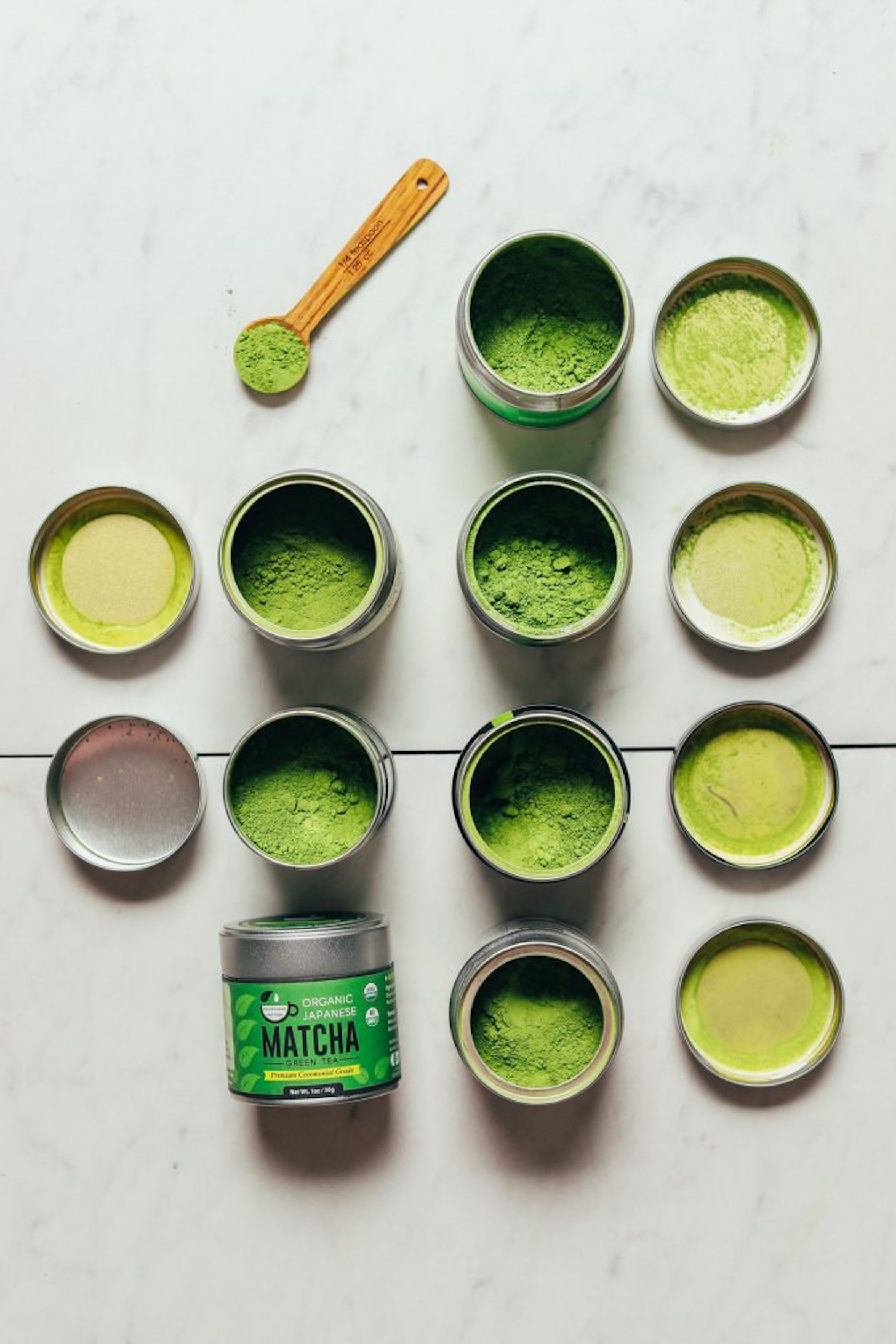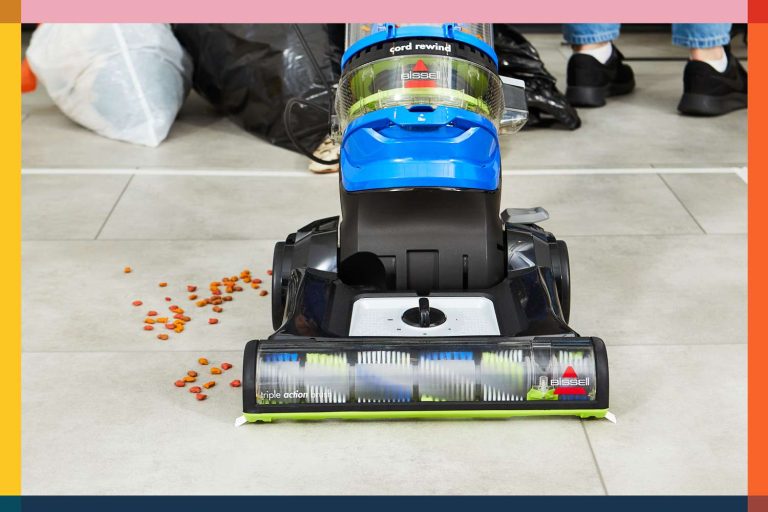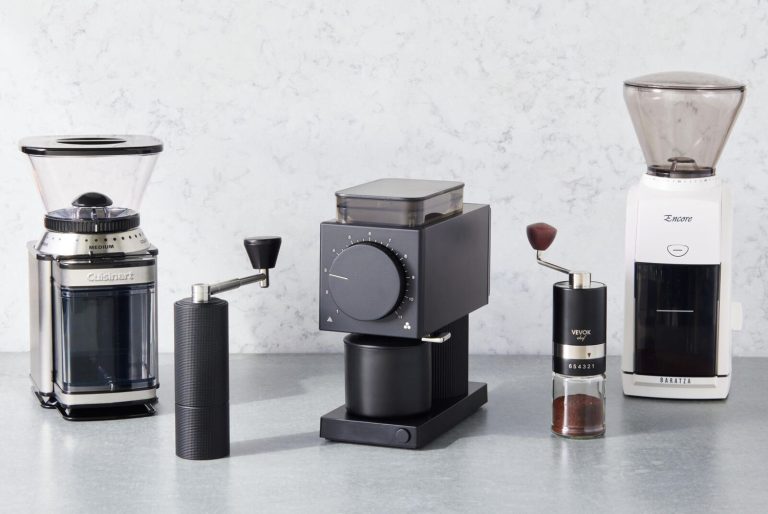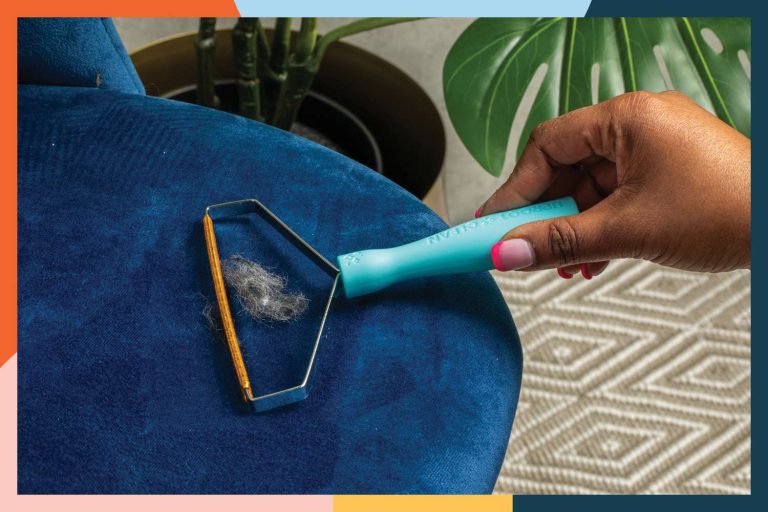9 Best Matcha Powders: Top Picks for Health, Cooking, and Daily Use
If you’re looking to elevate your tea game, matcha powder is the way to go. This vibrant green tea isn’t just a trendy beverage; it’s packed with antioxidants, boosts your metabolism, and provides a calm, focused energy. Whether you’re a seasoned matcha drinker or a newcomer, finding the best matcha powder can be a game-changer.
Selecting the Right Matcha Powder
Selecting the right matcha powder can elevate your tea experience. Consider the following factors and pricing details to make an informed choice.
Factors to Consider When Choosing Matcha
- Quality Grade: Opt for ceremonial grade matcha if you’re looking for the highest quality. It offers a vibrant green color and smooth texture, perfect for drinking. Culinary grade, on the other hand, is ideal for cooking and baking due to its stronger flavor and lower price.
- Color: Choose matcha with a bright, vibrant green hue. Dull or yellowish-green matcha often indicates lower quality, affecting the taste and nutritional benefits.
- Origin: Prefer matcha sourced from Japan, especially regions like Uji, Nishio, or Shizuoka. These areas are renowned for producing superior matcha due to their favorable growing conditions.
- Texture: Look for a fine, smooth powder. High-quality matcha should feel silky and blend easily without clumping. Gritty texture usually signifies lower quality.
- Taste: Expect a gentle, sweet umami flavor with a hint of bitterness in ceremonial grade matcha. Low-quality matcha often tastes more bitter and earthy.
- Aroma: High-quality matcha emits a fresh, grassy aroma. A stale or musty smell is a red flag for lower grade products, indicating age or poor storage conditions.
- Ceremonial Grade: Prices typically range from $25 to $50 per 30-gram tin. The higher cost reflects the superior quality and meticulous production process. Examples include well-known brands like Ippodo and Matchaeologist.
- Culinary Grade: More affordable, costing between $10 to $25 per 100 grams. Ideal for recipes, it allows you to enjoy the benefits of matcha without breaking the bank. Brands like Jade Leaf and Encha offer great options within this range.
- Bulk Purchases: Buying in bulk can save money if you consume matcha regularly. Look for reputable suppliers that offer discounts on larger quantities, ensuring the matcha is still high quality despite the lower price per gram.
- Organic Options: Expect to pay a premium for organic matcha, typically $5 to $10 more per tin. Brands like Kiss Me Organics and PureChimp offer certified organic matcha, ensuring no synthetic pesticides or fertilizers were used.
Considering these factors and pricing options will help you choose the best matcha powder for your needs, ensuring a delightful and beneficial tea experience.
1. Ceremonial Grade Matcha
Ceremonial grade matcha is the highest quality of matcha powder, designed for traditional tea ceremonies. It’s prized for its vibrant color, smooth texture, and delicate flavor.
Understanding Ceremonial Grade
Ceremonial grade matcha is made from the youngest tea leaves, which are handpicked and carefully processed. This grade of matcha offers a naturally sweet taste, free from bitterness, making it ideal for drinking straight. The vibrant green color signifies high chlorophyll levels and freshness. The texture should be very fine, almost like baby powder, ensuring it blends effortlessly with water.
Best Ceremonial Grade Matcha Powder Brands
Several brands stand out for their ceremonial grade matcha. Ippodo is renowned for its rich, umami flavor, and smooth finish. Domatcha offers exceptional quality with a slightly sweet aroma. Matcha Konomi is celebrated for its bright color and balanced taste. Jade Leaf combines affordability with purity, making it a favorite among newcomers. Kenko Tea is sourced from Japan’s Nishio region, known for its traditional cultivation methods and superior matcha quality.
These brands ensure you get the best ceremonial grade matcha, transforming your tea experience into a delightful, health-boosting ritual.
2. Culinary Grade Matcha
Culinary grade matcha is perfect for cooking and baking, offering a bold flavor ideal for recipes. It’s generally less expensive than ceremonial grade, making it a great choice for everyday use.
Identifying Culinary Grade
Identifying culinary grade matcha involves checking its color, texture, and taste. Look for a slightly duller green compared to ceremonial grade. The texture should be fine but may have a bit more grit. The taste is more robust and bitter, which stands up well in lattes, smoothies, and baked goods. Reading the packaging or description for terms like “culinary,” “kitchen,” or “cooking” can also help ensure you’re getting the right grade.
- Encha Culinary Organic Matcha: Ideal for smoothies and baking. This matcha is both USDA Organic and non-GMO.
- Matcha Love Culinary Use Matcha: Offers a vibrant flavor at a value price, versatile for all culinary creations.
- Kiss Me Organics Culinary Grade Matcha: Perfect for adding a powerful green tea flavor to dishes and drinks; it’s organic and lab-tested for purity.
- Jade Leaf Culinary Matcha: USDA Organic certified, this matcha provides a full-bodied, grassy taste ideal for recipes.
- Mighty Leaf Tea Matcha: Great for cooking, this matcha adds a deep, rich flavor to your favorite dishes and beverages.
3. Organic Matcha
Organic matcha is gaining popularity for its purity and environmental benefits. Here’s why you should consider adding organic matcha to your daily routine.
Benefits of Organic Matcha
Avoids Harmful Chemicals: Organic matcha is grown without synthetic pesticides or fertilizers, making it a cleaner choice for your body and the planet.
Rich in Nutrients: Organic farming practices can enhance nutrient density, offering more vitamins, antioxidants, and minerals per serving.
Environmental Sustainability: Choosing organic supports sustainable farming methods that preserve soil health and biodiversity.
- Kenko Organic Matcha: Known for its vibrant green color and smooth taste, Kenko’s matcha is stone-ground from shade-grown leaves in Uji, Japan.
- Jade Leaf Organic Matcha: Affordable and high-quality, this brand offers USDA-certified organic matcha, sourced directly from farms in Japan.
- Matcha Konomi Akira: Highly praised for its creamy texture and bright flavor, Matcha Konomi Akira is 100% organic and perfect for both drinking and cooking.
- Encha Organic Matcha: Encha offers premium ceremonial grade matcha that is organic and free from any additives. It’s ideal for traditional tea preparations.
- Pure Matcha: This brand offers a smooth and earthy flavor profile, with matcha sourced from organic farms in Nishio, Japan.
Selecting the right organic matcha not only benefits your health but also supports practices that are kinder to the environment.
4. Budget-Friendly Matcha
Looking for matcha that won’t break the bank? Budget-friendly matcha offers quality without the premium price tag.
Affordable Matcha Options
- Kenko Culinary Grade: Kenko offers a cost-effective culinary grade matcha that’s perfect for smoothies, lattes, and baking. It’s sourced from Nishio, Japan, ensuring authentic flavor and quality.
- Jade Leaf Everyday Organic: Jade Leaf provides an affordable organic matcha option. It’s USDA Organic certified, making it a great choice for everyday consumption and recipes.
- Matcha DNA: Matcha DNA offers an inexpensive, organic matcha sourced from Chinese tea fields. It’s ideal for those seeking health benefits without a hefty price.
- Kiss Me Organics: Kiss Me Organics provides a budget-friendly option that’s perfect for culinary creations. It’s known for its vibrant green color and smooth texture, making it a favorite among budget-conscious consumers.
- Harney & Sons: Harney & Sons offers a reasonably priced matcha with a balanced flavor profile. This brand makes it easy to enjoy matcha without overspending.
What to Expect from Budget Matcha
Expect a different texture. Budget matcha powders may have a slightly grainier texture compared to higher-end options.
Note the flavor. Lower cost matcha can have a more robust, sometimes slightly bitter taste, making it ideal for mixing with other ingredients.
Color compromise. The powder might be less vibrant green, often closer to a yellow-green, due to a difference in chlorophyll content.
Understand the versatility. Budget matcha is versatile, making it perfect for smoothies, lattes, and baking where it blends well with other flavors.
Reap the benefits. Despite a lower price, budget matcha still provides many of the health benefits, including antioxidants and energy-boosting properties.
Ultimately, finding a balance between cost and quality is key for enjoying matcha while staying within your budget.
5. High-End Matcha
What Makes Matcha High-End?
Superior quality, meticulous cultivation, and hand-harvesting define high-end matcha. These matcha powders come from the first harvest, known as the “first flush,” ensuring the freshest, most vibrant leaves. Producers shade-grow the tea plants, enhancing chlorophyll and amino acid levels, giving the matcha its bright color and rich, umami flavor. High-end matcha has a finely ground, almost silky texture, indicating thorough processing and milling.
- Ippodo Tea Co.: Renowned for its centuries-old expertise, Ippodo’s premium matcha offers a perfect blend of sweetness and depth, with a bright green hue and smooth finish.
- Domatcha: This brand delivers a finely milled matcha that’s rich in flavor and packed with antioxidants, sourced directly from Uji, Japan.
- Matcha Konomi Akira: Known for its delicate taste and vibrant color, Matcha Konomi Akira provides an authentic and refreshing matcha experience.
- Jade Leaf: Their ceremonial-grade matcha boasts a creamy, full-bodied flavor profile, sourced from the finest tea gardens.
- Kenko Tea: Famous for its ultra-premium ceremonial matcha, Kenko Tea offers a velvety texture and a burst of umami that showcases traditional Japanese craftsmanship.
6. Matcha for Daily Use
When incorporating matcha into your daily routine, it’s important to find a balance of quality, taste, and cost. Here’s what you need to know when selecting matcha for everyday use.
Most Versatile Matcha for Everyday Needs
Look for versatility in matcha that you can use for various purposes, from beverages to cooking. Brands like Jade Leaf and Matcha Love offer daily blends that provide a rich, smooth taste suitable for both drinking and culinary applications. Their matcha has a delicate balance between umami and slight bitterness, making it ideal for lattes, smoothies, and even savory recipes.
Choosing Your Daily Matcha
Consider factors like price, flavor profile, and packaging when choosing your daily matcha. Jade Leaf’s Daily Matcha is priced reasonably and has a vibrant green color that indicates freshness. Similarly, Matcha Love’s culinary grade matcha is perfect for those who want quality without breaking the bank. Both brands ensure their products are sourced from prime matcha-growing regions in Japan, ensuring authenticity and consistency.
By integrating these matchas into your daily routine, you’ll enjoy the numerous health benefits and rich flavors matcha offers.
7. Matcha for Cooking and Baking
When it comes to culinary matcha, not all powders are created equal. Using the right matcha can elevate your dishes, adding a unique flavor and vibrant color.
Best Matcha for Culinary Creations
Opt for culinary grade matcha from reputable brands like Matcha Konomi and Encha. Matcha Konomi’s culinary blend offers a slightly robust flavor, perfect for lattes and smoothies. Encha’s culinary matcha has a fine texture that mixes well in baked goods without clumping.
Look for rich green color and a mildly grassy aroma. The best matcha will complement both sweet and savory dishes, providing a balanced taste that enhances, not overpowers. Matcha Love’s culinary blend is excellent for sauces, dressings, and even ice cream.
Tips on Cooking with Matcha
Use about 1-2 teaspoons of matcha powder when baking. This amount ensures a balanced flavor. Always sift the matcha to avoid clumps. Sifting helps achieve a smooth consistency, crucial for delicate recipes like matcha macarons.
Combine matcha with other dry ingredients before adding liquids. This approach helps distribute the matcha evenly throughout the mixture. When making beverages, first create a matcha slurry by mixing it with a small amount of warm water.
Store matcha in an airtight container in a cool, dark place. This storage method preserves its freshness and vibrant color. Using fresh matcha guarantees optimal flavor in your culinary creations.
8. Matcha for Lattes
Matcha lattes are a popular way to enjoy the health benefits of matcha powder while indulging in a creamy, delicious beverage.
Ideal Matcha for a Perfect Latte
Choose premium culinary grade matcha for lattes. It provides a balance between cost and quality, offering a robust flavor that stands up well to milk. Opt for organic varieties to ensure you’re avoiding pesticides. Highlight brands like Akira Matcha and Ippodo, known for their smooth blends and vibrant color. Remember, the right matcha will produce a rich taste and a brilliant green hue, enhancing the visual and sensory experience of your latte.
Mixing Techniques for Matcha Lattes
Use precise measurements to ensure consistency. Whisk 1 teaspoon of matcha powder with 2 ounces of hot water (175°F) until frothy and smooth. Incorporate a high-quality milk frother or bamboo whisk (chasen) for best results. Gradually add 6-8 ounces of steamed milk to create a velvety texture. Sweeten to taste with honey, agave, or a dash of vanilla extract. Adopt these techniques to achieve a perfectly blended and flavorful matcha latte every time.
9. Matcha for Health Enthusiasts
Matcha is perfect if you’re a health enthusiast looking to enhance your wellness routine. Here’s how you can choose the best matcha powder with health-boosting properties.
Matcha with Health-Boosting Properties
Matcha’s rich in antioxidants, particularly catechins, which support your immune system and help fight inflammation. It’s also known for its ability to boost metabolism, making it a great addition to any weight management plan. Look for matcha brands that specifically highlight high antioxidant content, such as DoMatcha or Organic Burst, which are known for their potent health benefits.
Selecting Matcha for Its Health Benefits
Choose ceremonial grade matcha for the highest concentration of beneficial compounds. It’s best to select brands like Kenko or Encha, known for their organic, high-quality offerings. Make sure your matcha is bright green, indicating it’s rich in chlorophyll and amino acids. Avoid matcha with dull or yellow hues, as this typically signifies a lower quality product and fewer health benefits.
Conclusion
Choosing the best matcha powder can elevate your tea experience and boost your health. Whether you’re looking for ceremonial grade matcha for its rich flavor and high antioxidant content or culinary grade matcha for cooking and baking, there’s a perfect matcha for every need. Brands like Jade Leaf, Matcha Love, Kenko, and Encha offer a range of options to suit your taste and budget. By considering factors like quality grade, color, origin, and aroma, you can find the ideal matcha powder to enjoy its numerous benefits. Happy matcha hunting!






